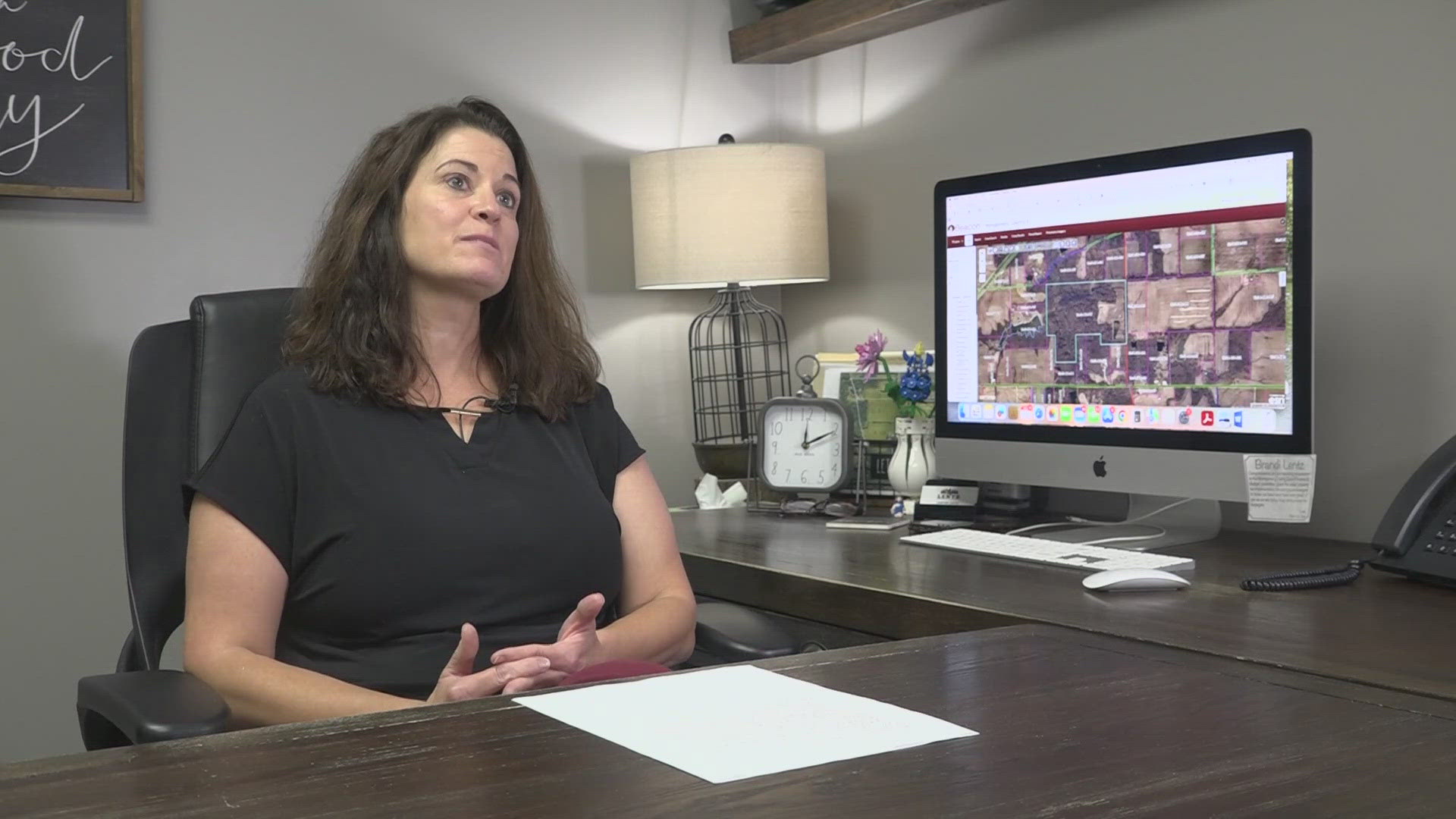There are still two bullets in Kat Hutson.
Almost a year ago, her husband shot her nine times before killing himself.
"I remember holding my belly and all the blood...," Hutson said. "The blood was horrific."

Hutson moved from the Lake of the Ozarks to St. Louis after filing a family violence order of protection against her husband, who frequently flashed his guns to intimidate her.
"Many of the people who come to us are very fearful and speak of being very afraid that they may be killed because their abuser has a firearm," Legal Services of Eastern Missouri's staff attorney, Cheryl Rafert said. Rafert has worked with domestic violence survivors for nine years.
In 2016, 71 people died in domestic violence-related homicides in Missouri, according to the Missouri State Highway Patrol.
Federal law states that anyone served with a full family violence order of protection after a hearing cannot possess a gun.

Missouri is one of only five states with no law at any stage of the process that gives authority to actually enforce this.
Other states include South Carolina, Louisiana, Kansas and Georgia.
"How can you release a gun to someone who has [a] violent nature," Hutson said when a police officer told her that he would have to give back the gun to her husband.
When officers went to serve Michael Hutson with the order of protection, he escaped through a window of his home and dropped his gun. The officers retrieved it.

"It was flabbergasting. He [The officer] just said basically, 'he hadn't done anything yet,'" Hutson said.
A CDC study found that around 42 percent of woman interviewed in Missouri experienced domestic violence in their lifetimes.
That's the sixth highest rate of any state in the country.

"I'm torn because I believe in the rights of people to own guns," Hutson said. "But my whole feeling is, if I were a gun owner and I got in that situation, I would either prove myself and get my guns back or deserve to have them taken away."
Some gun rights advocates worry about a different kind of abuse.
"I have seen people in divorces use the system as leverage to help their case when it comes to civil court," Matt Canovi said. Canovi was a police officer in the St. Louis area for nearly 20 years. He is now the host of "The Gun Show" on KSGF 104.1 in Springfield, Missouri.
He believes the state already has laws in place to protect people who are threatened with a gun.
"Let's say a husband threatens his wife with a gun. That's wrong," he said. "It shouldn't be done. But now, she can file criminal charges against him. He can be arrested on attempt of first degree assault. There is a criminal process."
The only way to take a gun away from someone who is served a protection order, is for a judge to do it on their own.

States with laws that enforce the Lautenberg Amendment fill 'gaps' in the federal law by reporting domestic violence abusers to the national instant criminal background check system and requiring them to surrender guns after conviction.
In 2018, both a member of the Missouri House and Senate introduced separate bills that would take guns away from people with full protection orders against them.
However, getting the law passed has been attempted in past years and went nowhere.
"I think there needs to be a happy medium for where people's rights are still there but once you abuse them...," Huston said. "It's not different if you drink or drive. You get your right taken away to drive."
If you are a victim of domestic violence, you can call the National Domestic Violence Hotline at 800-799-SAFE (7233) or visit the website: www.thehotline.org


